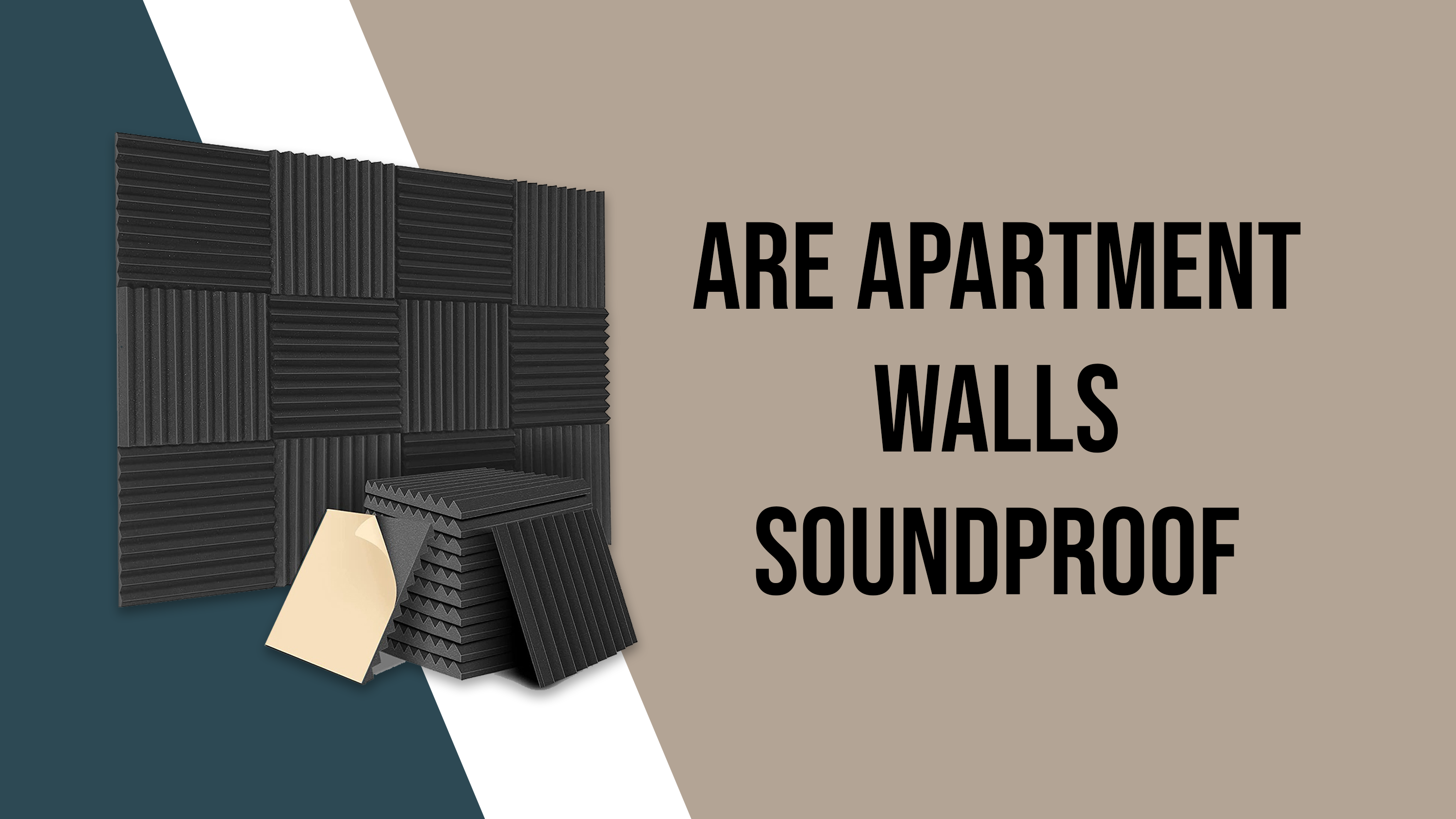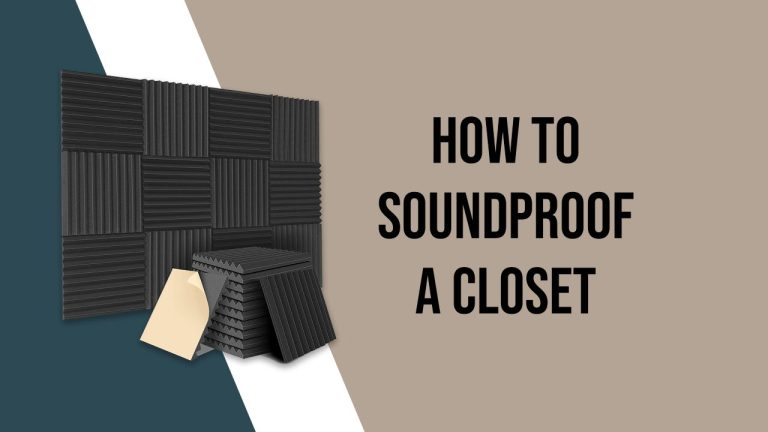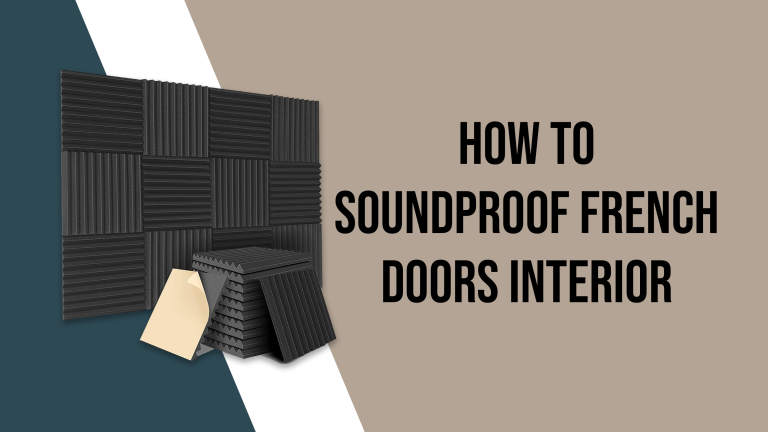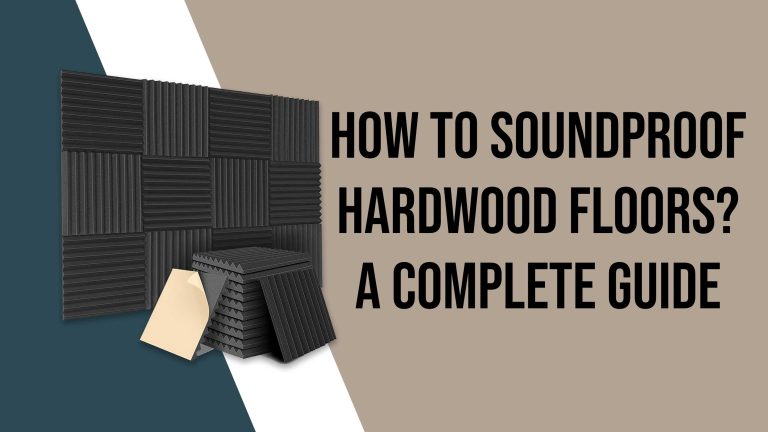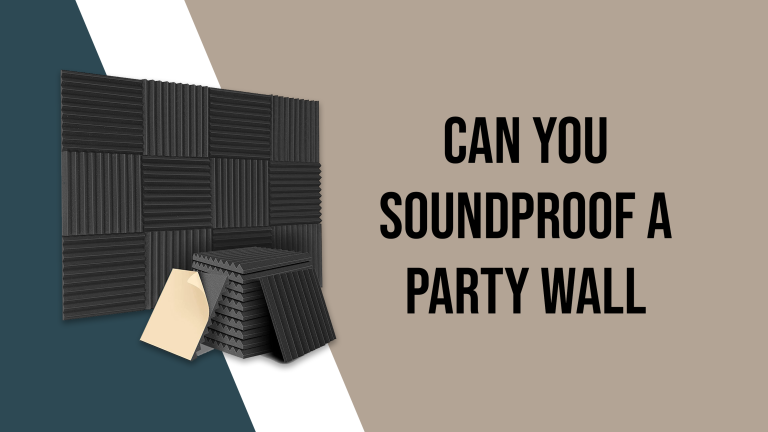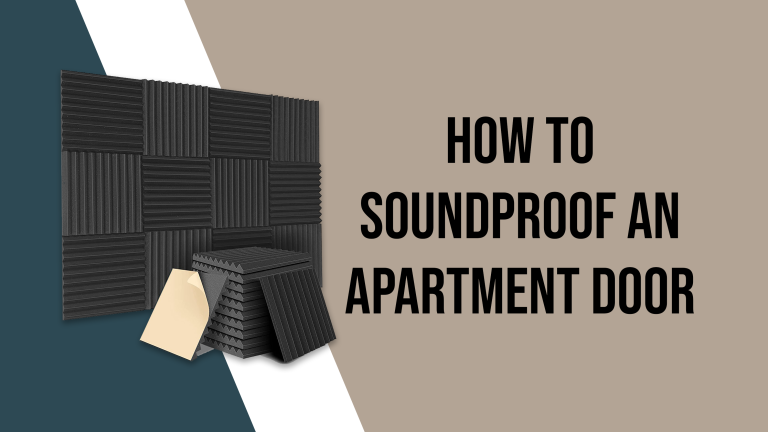Are Apartment Walls Soundproof
Living in an apartment can be a great option for many people, but one of the downsides is the potential for noise from neighboring units. One question that many apartment dwellers have is whether or not their walls are soundproof.
You often soundproof:
- Barn Door
- Hollow Door
- Closet
- Drop Ceiling
- Hotel Rooms
- Hurricane Windows
- Baby Room
- Basement
- Mobile Home
In this article, we will explore the topic of soundproofing in apartments and provide information on how to determine if your walls are soundproof and what steps you can take to reduce noise in your apartment.
Are Apartment Walls Soundproof?
What is Soundproofing?
Soundproofing is the process of reducing the amount of sound that enters or leaves a room or building. There are different methods of soundproofing, including using insulation, adding mass to walls and ceilings, and using sound-absorbing materials. The effectiveness of soundproofing measures will depend on the type of construction of the building and the specific materials used.
How to Determine If Your Apartment Walls are Soundproof
The best way to determine if your apartment walls are soundproof is to conduct a sound test. This can be done by hiring a professional or by using a smartphone app. The app will measure the sound level in decibels (dB) and provide a reading that can be compared to industry standards.
Another way to determine if your walls are soundproof is to observe the amount of noise you can hear from neighboring units. If you can hear a significant amount of noise, your walls are likely not soundproof.
Ways to Improve Soundproofing in Your Apartment
If you have determined that your walls are not soundproof, there are steps you can take to improve the soundproofing in your apartment. Some of these include:
Adding Mass to Walls and Ceilings:
Adding mass to walls and ceilings can help to block sound from entering or leaving a room. This can be done by installing drywall or adding a second layer of drywall.
Using Insulation:
Insulation can help to reduce the amount of sound that enters or leaves a room. This can be done by adding insulation to walls and ceilings or by using soundproofing curtains.
Using Sound-Absorbing Materials:
Materials such as acoustic foam or sound-absorbing panels can be used to reduce the amount of sound that is reflected within a room.
Sealing Gaps and Cracks:
Gaps and cracks in walls, floors, and ceilings can allow sound to enter or leave a room. Sealing these gaps and cracks can help to improve soundproofing.
What type of walls are there
There are several types of walls that are commonly used in construction, some examples are:
Brick walls:
These are made of clay or cement bricks that are laid and cemented together. They are known for their durability and fire resistance.
Concrete walls:
These are made of reinforced or precast concrete. They are also known for their durability and fire resistance.
Wood-frame walls:
These are made of wooden studs and framing, with insulation and drywall or plaster applied to the interior and exterior.
Drywall walls:
These are made of gypsum board, which is also known as drywall, attached to wooden studs. They are typically used in residential construction and are relatively cheap and easy to install.
Glass walls:
These are made of large glass panels and are often used in commercial and modern residential construction. They allow for natural light and can provide an open, airy feel to a space.
Metal walls:
These are made of steel or aluminum and are often used in industrial or commercial construction. They are known for their durability and fire resistance.
Stone walls:
These are made of natural stone such as granite, limestone, or sandstone, they are used mostly as an accent walls, they can also be used as exterior walls.
ICF walls:
These are made of Insulated Concrete Forms, they are blocks made of foam insulation that are filled with concrete, the result is a solid wall with a high level of insulation, fire resistance and structural integrity.
These are just a few examples, and it’s worth noting that there are many variations and combinations of these types of walls used in construction.
Are the windows good for sound control?
The quality and type of windows can have an impact on sound control. Double-paned windows with a layer of gas, such as argon or krypton, between the panes can help reduce sound transmission. Windows with thicker glass and those that are designed specifically for soundproofing can also help reduce sound transmission. However, it is important to note that windows alone may not be sufficient to achieve optimal sound control in a room.
FAQ’s
How soundproof is an apartment?
The level of soundproofing in an apartment can vary depending on several factors, such as the building’s construction materials and age, the location of the apartment within the building, and the presence of any soundproofing materials or treatments.
Some newer buildings may have more advanced soundproofing features such as thicker walls or double-paned windows, while older buildings may have less effective soundproofing. Additionally, apartments on higher floors or on the opposite side of the building from a noisy street or construction may be quieter than those on lower floors or closer to sources of noise. To know more specifically, it’s better to check it with the apartment management.
How do I know if my wall is soundproof?
To determine the level of soundproofing in a wall, you can conduct a sound test by playing music or making noise on one side of the wall and measuring the decibel level on the other side. Another method is to inspect the wall for soundproofing materials or construction methods, such as thick drywall or insulation.
Can you soundproof an apartment with thin walls?
It can be challenging to soundproof an apartment with thin walls, but there are methods to reduce the amount of sound that passes through the walls. These methods include adding insulation, using soundproofing paint or drywall, and hanging sound-absorbing curtains or blinds.
What walls are most soundproof?
Walls that are most soundproof typically have multiple layers of drywall or plaster, as well as insulation. Additionally, walls with a thicker mass, such as concrete or brick, are more soundproof than those made of wood or drywall.
Does noise travel up or down in an apartment?
Noise can travel both up and down in an apartment, depending on the construction of the building and the location of the apartment within it. For example, noise from upstairs neighbors can travel down through the floor, while noise from downstairs neighbors can travel up through the ceiling.
Are new apartments more soundproof?
Newer apartments may have more advanced soundproofing features such as thicker walls or double-paned windows, which can make them quieter than older apartments. However, the level of soundproofing in a new apartment also depends on the building’s construction materials, location, and any soundproofing materials or treatments that have been added.
Why don’t apartments have soundproofing?
Some apartments may not have soundproofing because it is an additional cost and not all landlords or building developers choose to include soundproofing features in their construction plans. Additionally, soundproofing may not be required by building codes or regulations.
How loud can you be in an apartment dB?
The maximum noise level in an apartment can vary depending on local laws and regulations. It’s advisable to check with your local government or apartment management to find out the specific regulations in your area. Generally, the noise level should not exceed 55 decibels during the day and 45 decibels at night.
Does soundproofing walls work for noisy neighbors?
Soundproofing walls can help reduce the amount of noise that passes through the walls, making it less likely to be heard by neighbors. However, it may not completely eliminate all noise, especially if the noise is coming from a common area such as the hallway or stairwell.
How much space do you lose with soundproofing?
The amount of space that is lost with soundproofing can vary depending on the method used and the size of the room. Some methods, such as adding insulation or hanging sound-absorbing curtains, may not result in any loss of space. However, building a second layer of drywall or installing acoustic paneling on walls can add thickness to the walls, potentially reducing the overall square footage of the room. Additionally, using soundproofing materials such as acoustic foam or fiberglass insulation may also take up some space within the walls or ceiling. The specific amount of space lost will depend on the type and quantity of soundproofing materials used, as well as the size and layout of the room. It’s worth noting that, in some cases, soundproofing can also increase the value of your property and therefore it might not be a loss but an investment.
Conclusion
Soundproofing in apartments can be a complex issue, and the effectiveness of soundproofing measures will depend on the construction of the building and the materials used. Conducting a sound test or observing the amount of noise from neighboring units can help to determine if your walls are soundproof. If you have determined that your walls are not soundproof, there are steps you can take to improve the soundproofing in your apartment, including adding mass to walls and ceilings, using insulation, using sound-absorbing materials, and sealing gaps and cracks. Remember that soundproofing is not a one-time process, it need to be done periodically to maintain the effectiveness.

